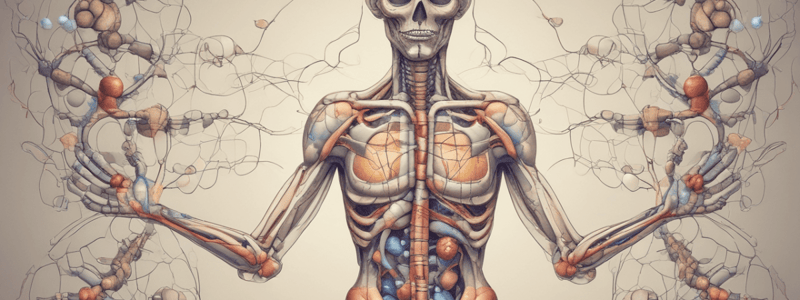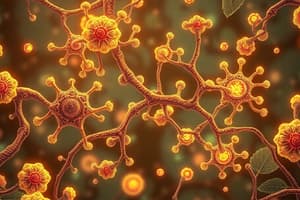Podcast
Questions and Answers
Which opioid receptor has the highest affinity for morphine?
Which opioid receptor has the highest affinity for morphine?
- mu (m) receptors (correct)
- kappa (k) receptors
- All opioid receptors have equal affinity for morphine
- delta (d) receptors
What type of pain is typically managed with opioid analgesics?
What type of pain is typically managed with opioid analgesics?
- Moderate to severe pain (correct)
- Menstrual cramps and sports injuries
- Osteoarthritis and ankylosing spondylitis
- Mild headaches and fever
Which of the following is TRUE about the opioid antagonist Naloxone?
Which of the following is TRUE about the opioid antagonist Naloxone?
- It produces physical dependence
- It inhibits all opioid receptors, with the highest affinity for mu receptors (correct)
- It activates all opioid receptors
- It has no effect on opioid receptors
What is the primary mechanism of action for non-opioid analgesics?
What is the primary mechanism of action for non-opioid analgesics?
Which non-opioid analgesic is a centrally acting agent?
Which non-opioid analgesic is a centrally acting agent?
What is the primary use of non-opioid analgesics?
What is the primary use of non-opioid analgesics?
Which enzyme is required for prostaglandin formation and is inactivated by aspirin, NSAIDs, and acetaminophen?
Which enzyme is required for prostaglandin formation and is inactivated by aspirin, NSAIDs, and acetaminophen?
What is the primary difference in the effect of activating kappa receptors versus mu receptors?
What is the primary difference in the effect of activating kappa receptors versus mu receptors?
What type of pain is typically associated with the use of opioid analgesics?
What type of pain is typically associated with the use of opioid analgesics?
Flashcards are hidden until you start studying




